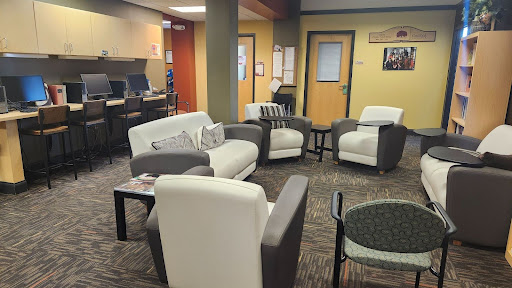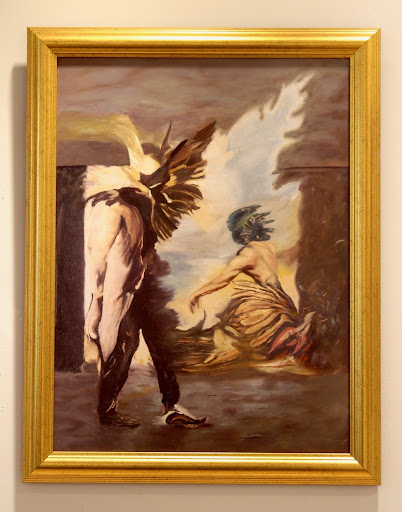While many students at Guilford College this summer were enjoying the sun outside or working summer jobs, one student was participating in something rather special. Junior Fiona Lloyd-Muller spent a significant portion of her time over summer vacation abroad in Zanzibar, Tanzania ,teaching English at a local school.
She traveled through the America’s Unofficial Ambassador program.
“(The program) is a citizen initiative that encourages Americans to volunteer in Muslim communities abroad, to participate in meaningful service with schools and human development non-governmental organizations (and) to dispel the image of Muslims as the Other,” according to program director Stefan Cornibert.
Although Lloyd-Muller had some teaching experience before, including tutoring at an East African community center in high school, this was her first time taking on the challenging role of a teacher for a whole class.
“I learned how to teach and handle a classroom filled with students ranging from 11 to 16- year-olds, and (I learned) a lot about their culture,” she said.
Despite the potential challenges of dealing with such a wide range of students in the classroom, Lloyd-Muller emphasized, “Before I left I got slightly nervous, however there was more of a sense of excitement. When I did arrive I was pleasantly surprised with how welcoming the people were and throughout my time there I was happy to see a different, more positive side of Africa rather than what we see portrayed in the media.”
Her days would start early — usually around 6 a.m. — after which she would walk to school.
“The school was built in a hotel and we would gather outside for morning announcements from the principle,” said Lloyd Muller. “This could last for up to 30 minutes after which the actual school-day would start.”
Lloyd-Muller got involved with the AUA while in the Principled Problem Solving program here at Guilford, where she was introduced to Cornibert. She encourages others to participate in similar programs, but also offers a caveat.
“I think many volunteer efforts that teach English abroad have a history of not really trying to make much of a positive difference and may even have a negative effect, although this is unintentional, in their student’s lives beyond the classroom,” said Lloyd-Muller. “I would encourage those who do participate in service trips to remember that this effort is not for them, but rather for those we wish to help.”
Would she still recommend the experience to others interested in volunteer work, though?
“Yes, even though we all say it is hard to find time in our schedule, we can always make time,” said Lloyd-Muller. “Go during summer if your schedule is usually filled. It will change you.”
Cornibert made a point of saying that those at the AUA are proud of Lloyd-Muller service work, and are hoping to work more closely with Guilford in the future.
Max Carter, Friends Center director and adjunct professor of religious studies, also provided alternatives for services with a closer connection to Guilford College.
“There is the Bonner Center for Community Service and Learning,” said Carter. “Additionally, there is the annual trip to Palestine and Israel organized by the Friends Center. During fall, winter, and spring breaks students and others in the community do a week-long service trip with N.C. Friends Disaster Service, building homes. There is also ‘No More Deaths,’ who are working on an organic farm (and) there is the option of volunteering at Woodbrooke, a Quaker retreat center in England.”











